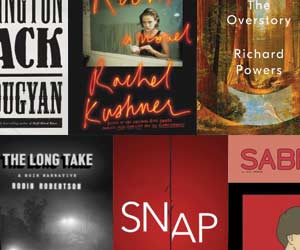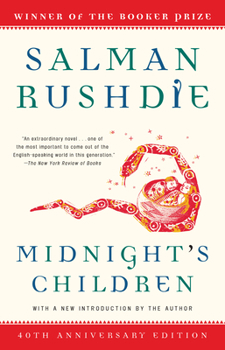Midnight's Children
Select Format
Select Condition 
Book Overview
WINNER OF THE BEST OF THE BOOKERS - SOON TO BE A NETFLIX ORIGINAL SERIES
Selected by the Modern Library as one of the 100 best novels of all time - The twenty-fifth anniversary edition, featuring a new introduction by the author
Saleem Sinai is born at the stroke of midnight on August 15, 1947, the very moment of India's independence. Greeted by fireworks displays, cheering crowds, and Prime Minister Nehru himself, Saleem grows up to learn the ominous consequences of this coincidence. His every act is mirrored and magnified in events that sway the course of national affairs; his health and well-being are inextricably bound to those of his nation; his life is inseparable, at times indistinguishable, from the history of his country. Perhaps most remarkable are the telepathic powers linking him with India's 1,000 other "midnight's children," all born in that initial hour and endowed with magical gifts. This novel is at once a fascinating family saga and an astonishing evocation of a vast land and its people-a brilliant incarnation of the universal human comedy. Twenty-five years after its publication, Midnight' s Children stands apart as both an epochal work of fiction and a brilliant performance by one of the great literary voices of our time.
Customer Reviews
Trust me, this book is worth reading!
Smell the chutney.
Detailed Tapestry
Empty Pickle Jar of Hope
Midnight's Children Mentions in Our Blog


The Pulitzer. The Man Booker Prize. The National Book Awards. The Edgar Awards. All of them generally mean one thing: the books they're awarded to definitely don't suck. In fact, they're brilliant and incredible and moving and mesmerizing and disturbing and powerful and funny and, well...you'll just have and read them for yourself. Below are the winners of the most prestigious prizes, so enjoy.

The Man Booker Prize is one of the most prestigious awards for literary fiction written in English, and the list of winners over the last 50 years includes Ian McEwan, Margaret Atwood, Yann Martel, and Salman Rushdie, so the 2018 prize announcement is big! (Also, the shortlist has six brilliant and diverse novels you’ll want to read regardless of who wins.)






